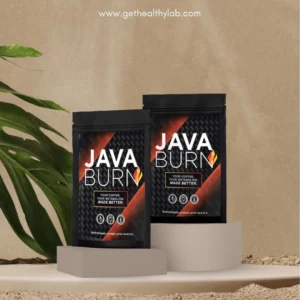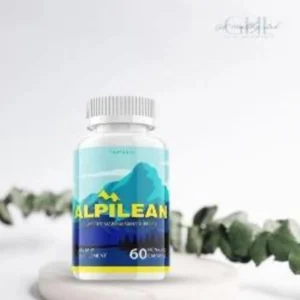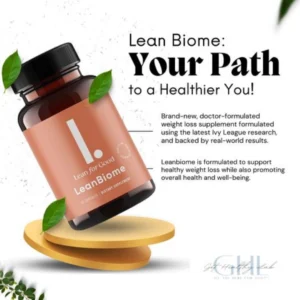Get Healthy Lab Weight Loss Products That Drive Results!
These 6 Products can drive results in pcos weight loss or just to lose a couple extra pounds!
Livpure, Alpilean, Custom Keto Diet. Lean-biome, Ikaria Lean Belly Juice, Java Burn all are perfect products for Weight Loss.

Unlock Your Weight Loss Potential with Ikaria Lean Belly Juice!
Are you tired of the endless search for effective weight loss solutions? Do you desire a natural and holistic approach to shedding those extra pounds while supporting your overall well-being? Look no further – Ikaria Lean Belly Juice is the game-changer you’ve been waiting for!
The Power of Holistic Weight Loss
“Balanced Approach to Weight Loss with Dietary Supplements” Ikaria Lean Belly Juice stands out as a beacon of balance in the saturated world of weight loss supplements. We understand that true health and weight management require a comprehensive approach. Our juice blends seamlessly combine carefully selected dietary supplements to ensure you not only lose weight but also nourish your body with essential nutrients for overall well-being.
“Antioxidant-Rich Supplements for Promoting Health and Weight Loss” Antioxidants play a pivotal role in supporting your body’s natural processes. Ikaria Lean Belly Juice is rich in antioxidants, carefully curated to promote health and aid in weight loss. By combating free radicals, our juice helps create an environment conducive to weight loss while bolstering your body’s defenses against the stresses of daily life.
“Nutritional Support for Energy and Vitality During Weight Loss” Embark on your weight loss journey with vitality and energy! Ikaria Lean Belly Juice isn’t just about shedding pounds; it’s about feeling invigorated every step of the way. Our unique formulation provides nutritional support to keep your energy levels up, ensuring you stay motivated and focused on your health and fitness goals.
Why Choose Ikaria Lean Belly Juice?
1. Natural and Sustainable Weight Loss
Ikaria Lean Belly Juice is crafted with a commitment to harnessing the power of nature. We believe in the efficacy of natural ingredients to support your weight loss journey without compromising your health. No artificial additives – just pure, natural goodness.
2. Comprehensive Nutritional Support
Experience a holistic approach to weight loss with Ikaria Lean Belly Juice. Our juice isn’t just a supplement; it’s a nutritional powerhouse designed to address your body’s needs throughout your weight loss transformation. Say goodbye to one-dimensional solutions and embrace a comprehensive wellness experience.
3. Unleash the Ikarian Secret
Inspired by the health and longevity of the people of Ikaria, Greece, our Lean Belly Juice encapsulates the essence of the Mediterranean lifestyle. Rich in antioxidants, carefully chosen herbs, and time-tested ingredients, it brings you a piece of the Ikarian secret to a healthy and fulfilling life.
Take the Leap Towards a Healthier You!
Are you ready to transform your weight loss journey? Ikaria Lean Belly Juice is more than a supplement; it’s your companion in achieving a balanced and vibrant life. Say goodbye to the struggles of conventional weight loss methods and embrace the Ikarian way.
Don’t miss out on the opportunity to redefine your health and wellness. Click [here] to unlock the door to a healthier, leaner, and more energized you. Ikaria Lean Belly Juice – where holistic weight loss meets unparalleled vitality.

Unlock Your Ultimate Weight Loss Journey with Custom Keto Nutrition!
Are you tired of the endless cycle of fad diets that promise quick fixes but leave you feeling deprived and frustrated? Are you searching for a sustainable and effective approach to weight loss that caters to your unique needs? Look no further – your personalized transformation begins with Custom Keto Nutrition!
The Power of Personalization
“Plant-Based Nutrition for Muscle Gain” Our custom keto plans embrace the power of plant-based nutrition to enhance your weight loss journey. Whether you’re a seasoned fitness enthusiast or just starting your wellness adventure, our customized approach ensures your nutritional needs align perfectly with your weight loss goals. Harness the benefits of a keto diet while enjoying a plant-powered experience tailored just for you.
“Mindful Eating Tips for Gradual Weight Loss” At Custom Keto Nutrition, we understand that sustainable weight loss is not about restrictive diets; it’s about fostering mindful eating habits. Our plans guide you through the process of embracing a positive relationship with food, empowering you to make informed choices that support gradual and lasting weight loss. No more crash diets—just a mindful, enjoyable, and effective approach to wellness.
“Nutrition and Lifestyle Changes for Effective Weight Loss” Successful weight loss is not only about what you eat but also about your lifestyle choices. Our custom keto plans go beyond the plate, addressing crucial lifestyle factors that impact your journey. From personalized workout suggestions to stress management tips, we’re committed to helping you achieve holistic well-being and sustainable results.
Why Choose Custom Keto Nutrition?
1. Tailored to Your Tastes and Preferences
We recognize that one size does not fit all. Your Custom Keto Nutrition plan is crafted based on your food preferences, making your weight loss journey enjoyable and sustainable. Say goodbye to bland meals and hello to a delicious, personalized menu that supports your goals.
2. Expert Guidance Every Step of the Way
Our team of nutrition experts and certified professionals is dedicated to your success. You’ll receive ongoing support, guidance, and resources to ensure you stay motivated and informed throughout your transformation. We’re not just providing a diet plan; we’re your partners in achieving the health and body you desire.
3. Results You Can Sustain
Custom Keto Nutrition is not a quick fix; it’s a lifestyle shift. By focusing on personalized nutrition and mindful eating, our approach ensures that the results you achieve are not only significant but sustainable. No more yo-yo dieting – just lasting, positive change.
Take the First Step Toward a Healthier You!
Embark on a journey that goes beyond traditional diets. With Custom Keto Nutrition, you’re not just purchasing a plan; you’re investing in a personalized roadmap to the healthiest version of yourself. Say goodbye to one-size-fits-all approaches and embrace a transformative experience designed just for you.
Don’t wait any longer. Your custom keto journey starts now! Click [here] to unlock the door to a healthier, happier, and more confident you.

Java Burn Start Your Day Right With A Boost Of Energy!
“Get Healthy and revamp your mornings and supercharge your weight loss expedition? Java Burn, the ultimate coffee blend you’ve longed for, offers compelling reasons to seize this chance and make a move today:
Seamless Fat Burning: Java Burn is precisely engineered to ignite your body’s inherent fat-burning mechanism. Each sip effortlessly aids in shedding those surplus pounds.
Morning Vitality Boost: Bid farewell to sluggish mornings. Java Burn injects your day with an unstoppable surge of energy, empowering you to tackle your agenda with fervor.
Tasty and Convenient: Revel in the robust and rich coffee flavor while accelerating your metabolism. No more grappling with intricate diets or time-consuming meal preparations.
Scientifically Validated: Endorsed by rigorous scientific research and loaded with powerful, natural components, Java Burn is the trusted option for individuals seeking a product that is devoted to driving weight loss results.
Life-Altering Shift: Java Burn transcends being mere coffee; it’s an enhancement of your lifestyle. Begin your day right and witness a surge in your confidence, concentration, and vibrancy.
Don’t let another sunrise pass without harnessing the potential of Java Burn. It’s time to take command of your mornings, your physique, and your life. Click below to integrate Java Burn into your daily routine and embark on a voyage to a livelier, healthier you. Your brighter days are just a cup away – take action now!
Don’t solely rely on our word; here’s what individuals are expressing about this remarkable product!
Java Burn:”

Alpilean Is Your Natural Solution for Slimming Down!
“Are you prepared to regain your energy and reach your weight loss targets effortlessly? Alpilean is an exceptional, state-of-the-art supplement supported by science that you’ve sought, and here’s why you should seize this chance and take action right away:
Effortless Fat Loss: Alpilean is composed of potent, natural components enhancing your metabolism, turning your body into an efficient fat-burning mechanism. Witness pounds vanish without the struggle.
Continuous Vitality: Say farewell to afternoon slumps and weariness. Alpilean ensures enduring energy, keeping you attentive, focused, and equipped to conquer your day.
Cravings Management: Cease the battle against cravings and overindulgence. Alpilean aids in controlling your appetite, facilitating adherence to a healthy eating regimen and evading unnecessary snacks.
Scientific Validation: Alpilean’s ingredients are validated by robust research, earning trust from experts and users alike. This supplement is your gateway to achieving genuine, enduring outcomes.
Overall Wellness: Alpilean is not solely about shedding weight; it’s about enhancing your entire life quality. Encounter enhanced moods, improved sleep, and a revived sense of self.
Don’t let another day slip by without harnessing the potential of Alpilean. It’s time to invest in yourself, your well-being, and your future. Click below to incorporate Alpilean into your daily routine and set off on a journey toward a healthier, more lively self. Take action now – your most excellent self awaits!
Don’t just take our word; hear what others are saying about this extraordinary product!
Alpilean:”

LeanBiome Your Key to Unlocking the Body You’ve Always Dreamed Of!
“Are you prepared to manage your weight and revolutionize your life? LeanBiome is the potent, evidence-based solution you’ve longed for. Here’s why you should seize this chance and take action now:
Targeted Weight Management: Bid farewell to ineffective diets. LeanBiome specifically addresses fat, aiding in shedding pounds where it matters, while preserving lean muscle.
Gut Health Enhancement: Recognizing the significance of a healthy gut in achieving enduring weight loss, LeanBiome integrates cutting-edge probiotics to optimize your gut, enhancing digestion and overall wellness.
Safe and Natural: Our formulation comprises natural, science-supported ingredients, ensuring goal achievement without adverse effects.
Enduring Outcomes: LeanBiome isn’t a quick solution; it’s a lifestyle alteration. Consistent usage not only leads to weight loss but also heightens energy levels, improves mood, and boosts confidence.
Continuous Assistance: We’re here to support you every step of the way. Join the LeanBiome community for expert guidance, meal plans, and workout tips, accelerating your journey toward a leaner, healthier self. Don’t delay another day without taking action.
LeanBiome is your path to your desired body. It’s time to invest in your future well-being. Click below to initiate your path towards a leaner, healthier, and happier version of yourself. Your envisioned body is within your grasp!
Don’t solely trust our words; here’s what individuals are expressing about this exceptional product!
LeanBiome:”

With Livpure Your Optimal Wellness Is Just Around The Corner!
“Ready for a complete health transformation? Check out Liv Pure – the ultimate solution elevating your life beyond imagination.
Why act now?
Pure Health: Liv Pure offers your daily health booster. Packed with vital nutrients, it rejuvenates, energizes, and revitalizes you.
Wellness Support: Bid farewell to fatigue, stress, and daily struggles. Liv Pure nurtures holistic well-being, backing your physical, mental, and emotional health.
Natural and Powerful: Our blend is carefully curated, using only top-quality natural components, ensuring each drop is potent and pure.
Youthful Vitality: Witness glowing skin, lush hair, and radiant nails. Liv Pure’s special mix enhances your inherent beauty from within.
Enduring Change: It’s more than a mere supplement; it’s a lifestyle. Liv Pure empowers enduring positive transformations leading to a happier, healthier you.
Don’t delay your journey to peak health. Liv Pure accompanies you in this remarkable shift. Act now and feel the difference yourself. Your future self will appreciate it! Click below to start your path to vibrant, pure living.
Don’t just listen to us; hear what people are saying about this extraordinary product!
Liv Pure”
Looking for different magnificent Weight Loss products we have you covered just click to check out our blog!
Any questions or concerns please feel free to contact me at Daryl@gethealthylab.com anytime i am here to help at all times.
Affiliate Disclaimer: Hello my name is Daryl i am an affiliate marketer and anything purchased threw these websites links could allow me to make a small commission.